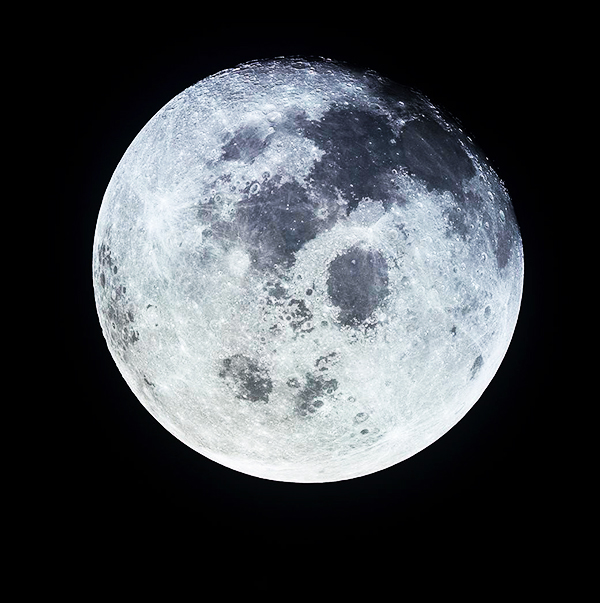
Earth's only satellite, the Moon translates the Hebrew word yareach (which appears 27 times in the OT) and the Greek selene (9x in the NT). The Moon was a common object of veneration in many ancient cultures; Sin, the moon-god, e.g., was the major god in Ur and Babylon. It is not difficult to understand why; Job shows how the brillance of the Sun and the Moon could so easily move people to such devoltion ("if I have regarded the sun in its radiance or the moon moving in splendour, so that my heart was secretly enticed and my hand offered them a kiss of homage, then these also would be sins to be judged, for I would have been unfaithful to God on high" (31:26). In the Bible, however, the moon is just another 'servant' appointed to serve to give light to the earth and to mark out day, the months and the seasons. In the first reference to the moon in the Bible, it is not even named as such; it is simply referredt to as "the lesser light to govern the night" (Gen 1:16).

Despite the fact that the Bible is so clear about the lowly status of the Moon, and its verneration strictly forbidden by the Mosaic injunctions (Deut 4:19; 17:3;) it did not escape veneration in Israel in ancient times. Hoshea (2 Ki 17:16) in Israel and Manasseh (2 Ki 21:3, 5; 2 Chron 33:3, 5) in Judah, were notorious in their worship of the "starry hosts."
Just as many moderns still believe that our behaviour can be affected by the moon (or its phases), so did the ancients. The Greek word for 'epileptics,' e.g., is seleniazomai, lit., 'moon-struck' (Matt 4:24). Whether Psm 121, in affirming that the moon will not harm you by night, is meant to indicate some such beliefs is uncertain.
When the day of the Lord comes, all the starry hosts will be darkened and the Moon will turn to blood (Joel 2:10, 31; 3:15; cf., Matt 24:29; Rev 6:12). Neither will there be a moon in the city of the New Jerusalem (Rev 21:23).

You may also wish to read about New Moon.
Resources
The Open University (UK) offers a free, introductory course called "The Moon," with a free statement of participation upon completion. You can, alternatively, read the course material (pdf)—for free—without doing the course.

©ALBERITH
291219lch